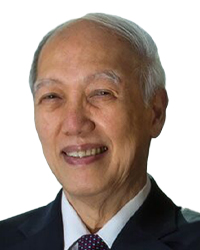Republic Act No. 8293, otherwise known as the Intellectual Property Code of the Philippines, provides remedies for owners to protect their intellectual property (IP) rights. In the past 10 years, an average of 632 inter partes cases involving trademarks, and seven inter partes cases involving patents were filed every year, contributing to a moderately active IP protection case scene.
To illustrate this, the authors briefly discuss the different remedies available for owners to protect their IP.
PATENTS: INFRINGEMENT REMEDIES

Senior Partner & Chairman
IP Department
Romulo Mabanta Buenaventura Sayoc & De los Angeles
Manila
Tel: +63 2 8555 9555
Whether a patent involves a product or a process, patent owners enjoy several exclusive rights. They are entitled to restrain, prohibit and prevent any unauthorised person or entity from making, using, offering for sale, selling, or importing their product, which is either protected by a patent or obtained directly or indirectly from a process protected by a patent.
Any violation of such rights constitutes patent infringement, and the patent holder may recover from the infringer in a civil action the damages sustained in the infringement, as well as attorney’s fees and other expenses. The patentee may likewise secure an injunction for the protection of his or her rights.
A court is likewise empowered to order that the infringing goods, materials and implements predominantly used in the infringement be disposed of outside the channels of commerce, or destroyed without compensation.
If the infringement is repeated by the infringer, they will be criminally liable and shall suffer imprisonment from six months to three years, and be liable for a fine of PHP100,000 (USD1,750) to PHP300,000.
REMEDIES FOR AN INVENTOR
The Intellectual Property Code similarly provides for remedies for a true and actual inventor, or one who was deprived of a patent without their consent, or through fraud. If the true or actual inventor is declared by a final court order or decision to be such, then the court shall order for his/her substitution as the patent holder, or, if the true inventor so prefers, cancel the patent and award damages in his/her favour, should the circumstances so warrant.
CANCELLATION OF PATENTS
Any interested person may petition to cancel a patent, or any claim or part, on the grounds that it:
- Concerns an invention that is not new or patentable;
- Does not disclose the invention in a manner that is sufficiently clear and complete; or
- Is contrary to public order and morality.
If it is found that there are sufficient grounds to cancel a patent or claim, a committee formed by the Director of Legal Affairs can order the patent or any associated claims cancelled. However, a patent owner may also amend the patent during the proceedings. If the amended patent is found to meet the requirements of the law, then the committee may decide to maintain the same.
UTILITY MODELS, INDUSTRIAL DESIGNS
The rights and remedies available to a patent holder may likewise be resorted to mutatis mutandis (all necessary changes having been made) by the owner of a utility model or the holder of an industrial design, integrated circuit or layout design certificate.
TM OPPOSITION, CANCELLATION

Associate
Romulo Mabanta Buenaventura Sayoc & De los Angeles
Manila
Tel: +63 2 8555 9555
Email: nicole.veloso@romulo.com
Any person who believes that he/she would suffer damages due to a registration of a mark may formally oppose the application for the same in writing. The law similarly provides that any person who believes that he/she will be damaged by a trademark registration may file a petition to cancel such registration within five years from the date of the registration of the mark.
However, a petition to cancel may also be filed at any time if the registered mark or a portion of it becomes the generic name for the good or service, or has been abandoned. A petition may also be filed at any time if its registration was obtained fraudulently or in a manner contrary to law, or if the registered mark is being used by, or with the permission of, the registrant to misrepresent the source of the good or service.
A petition for cancellation of registration may also be filed at any time if the registered owner of the mark, without legitimate reason, fails to use the mark within the Philippines over a period of three years or longer.
TRADEMARK INFRINGEMENT
A person may be held liable for trademark infringement if, without the consent of the owner, he/she uses any reproduction, counterfeit, copy, or colourable imitation of a registered mark, or the same container, or a dominant feature thereof in commerce, including the application of the registered mark to labels, signs, prints, packages, wrappers, receptacles or advertisements, in a manner likely to cause confusion or mistake.
UNFAIR COMPETITION
The Intellectual Property Code provides that a person who has identified in the mind of the public the goods he/she manufactures or deals in, or their business or services, from those of others, has a property right in the goodwill of the said goods that shall be protected in the same manner as other property rights. This is regardless of whether a registered mark is involved.
As such, any person who employs deception or any other means contrary to good faith by which he/she passes off such goods or services for those of the one having established such goodwill, or who shall commit any act calculated to produce said result, is guilty of unfair competition.
In particular, a person shall be deemed guilty of unfair competition if he/she, in the sale of his/her goods, gives them the general appearance of goods of another manufacturer or dealer to influence purchasers to believe that the goods are those of other manufacturers or dealers to deceive and defraud the public.
A person may also be deemed guilty of unfair competition if he/she employs any means calculated to induce the false belief that he/she is offering the services of another who has identified such services in the mind of the public.
Those who make any false statement in the course of trade, or who act in a manner contrary to good faith or calculated to discredit the goods, business or services of another, may also be deemed liable for unfair competition.
COPYRIGHT
Any person infringing a copyright may be subject to an injunction restraining such infringement. Additionally, the court may order that the infringer pay the copyright proprietor, or their assignees or heirs, such actual damages including legal costs and other expenses, as well as the profits the infringer may have made due to such infringement.
The infringer may likewise be ordered by the court to deliver sales invoices and other documents evidencing sales, and all articles and their packaging alleged to infringe a copyright, and implements for making them, to be impounded while the action is pending. He/she may similarly be ordered to deliver all infringing copies or devices, as well as all plates, moulds or other means for making such infringing copies, for their destruction. Finally, they may be ordered to pay damages.
OTHER PROTECTIVE REMEDIES
The Intellectual Property Office of the Philippines (IPOPHL) has an IP Rights Enforcement Office (IEO) created under IPOPHL Memorandum Circular 2020-049, with enforcement powers expanded to include electronic, digital and online channels.
These rules were issued in response to growing concerns about counterfeiting and piracy online. The IEO also has the authority to conduct motu proprio (on its own initiative) monitoring in both online and physical marketplaces.
In response to an administrative complaint by an IPR owner on counterfeiting and piracy, the IEO can issue an enforcement order to carry out the following: request removal of counterfeit goods or content including advertisements, or the blocking of access; issue cease and desist orders; order the removal of counterfeit or pirated goods or content from physical establishments; and endorse to the proper government agencies the cancellation of business permits and licences.
BUREAU OF CUSTOMS
An IPR holder/owner may apply with the Commissioner of Customs for the recording of his/her IPR in the Bureau of Customs IPR Registry on the payment of a fee for the bureau to monitor infringing goods at the border and determine whether such goods are subject to seizure and forfeiture.
An IPR holder/owner whose IPR is not recorded may also request the commissioner to issue an alert or hold order against any importation of suspected infringing goods.

21F, AIA Tower (formerly Philamlife Tower)
8767 Paseo de Roxas
Makati City 1226, Philippines
Tel: +63 2 8555 9555; +63 2 8848 0114
Email: romulo@romulo.com
www.romulo.com




























